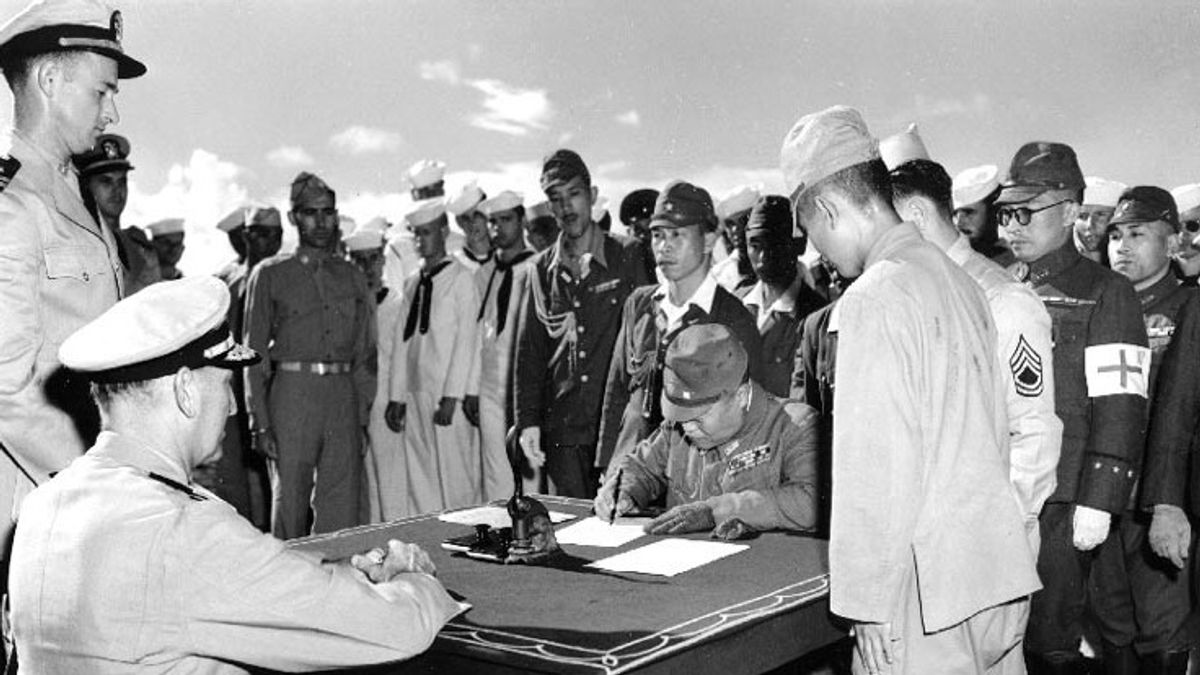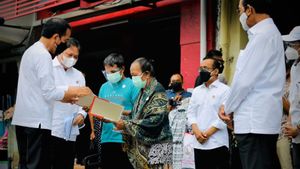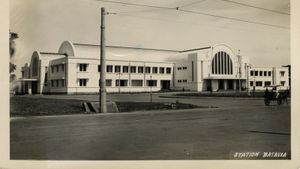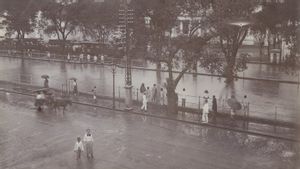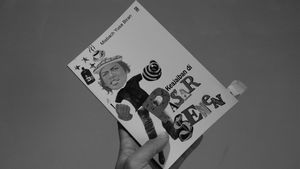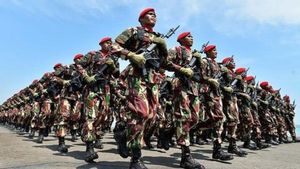JAKARTA – Today's history, 77 years ago, on October 10, 1945, the Japanese colonialists handed over North Sulawesi to the Dutch under the banner of the Nederlandsche Indische Civil Administration (NICA). Japan in the surrender was represented by Admiral Hamanaka.
The surrender of North Sulawesi made the Netherlands confident. Previously, the event of Japan's defeat to the allies was considered by the Dutch as bright as hope. The Dutch also took the ally, the British, to seize the Nusantara for the second time.
Japan has emerged as a great power in the world. Fleet and military equipment is qualified. The United States was also torn apart. While the European powers that inhabited Asia began to be expelled one by one. In return, the liberated countries were asked to support Japan in the war.

However, the narrative of Japan's greatness had to end. The events of the atomic bombings on Hiroshima and Nagasaki were behind it. The attack left most of the Japanese forces paralyzed. Japan then surrendered unconditionally to the allies on August 14, 1945.
The event of surrender of Japan was greeted with great fanfare by the country that was previously controlled by Japan. Indonesia, is one of them. The Bumiputras quickly took advantage of the incident to proclaim Indonesian Independence. August 17, 1945, was chosen.
In fact, it was not only the natives who took advantage of the condition of the Japanese who surrendered unconditionally. The Netherlands also tried to take advantage of the situation. They want to reclaim the territory they once colonized: Indonesia. The Netherlands, through NICA, took the ally, England, to smooth out this evil tactic. The Dutch soldiers who had been held captive by the Japanese were released entirely.
“Soon violence erupted between the revolution and those who were considered its enemies. After the Japanese surrender, many Dutch captives simply left their camps and returned home. By September there had been a lot of commotion on the streets of Surabaya between Indonesian youths and Europeans and tensions were running high in other areas. ”

“All of these events took place more in Java than in areas outside Java, where there were larger Japanese troops (especially in areas controlled by the navy), Japanese commanders who were less sympathetic to the Revolution, and smaller Republican activities. So far, the Revolution has not faced serious resistance. However, this will happen soon,” said Historian M.C. Ricklefs in the book Sejarah Indonesia Modern 1200-2008 (2008).
The Dutch ride with England brought significant results. They appear superior. NICA and British troops were not only deployed in Jakarta, but also outside the region. Many areas that were formerly controlled by Japan have now returned to the lap of the Dutch.
North Sulawesi region, for example. The area was completely returned to the Dutch on October 10, 1945. Admiral Hamanaka, who represented Japan, handed over the Minahasa and other territories to the Dutch.

“Dutch officials have returned to these areas. By the end of June 1945, small commando units (mostly Dutch, but accompanied by some British officers) had also been deployed in North Sumatra. Then on October 8, 1945, the allies (Australia-Netherlands) arrived in Manado, and the Dutch immediately used their government apparatus called the Nederlandsche Indische Civil Administration (NICA).”
“On October 10, 1945, Admiral Hamanaka, representing Japan, handed over North Sulawesi to the Allies, in this case, the Netherlands. Thus ended the Japanese occupation of Minahasa and replaced it with the Dutch East Indies, which immediately reactivated the Dutch troops from the Minahasa KNIL,” explained Jessy Wenas in the book Sejarah dan kebudayaan Minahasa (2017).
VOIR éGALEMENT:
The English, Chinese, Japanese, Arabic, and French versions are automatically generated by the AI. So there may still be inaccuracies in translating, please always see Indonesian as our main language. (system supported by DigitalSiber.id)
